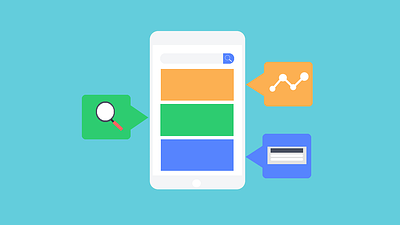Looking for all Articles by Lynsey May?
How to create a strong and searchable author profile for Live Literature
Your author profile is a way for people to find you – both through the programme and online in general.

Not only does having a Live Literature author profile make it possible for event organisers to find and book you through the programme, but it also offers a way for people to find you online. This can be really handy if you’re looking to book events or share more information about your work.
We’ve put together a quick guide to creating a strong author profile page to help you take advantage of your space on the author directory.
Why optimise your author page?
When people type your name into search engines like Google or Bing, you may find that your Live Literature profile is high up the results listed. Or your profile may even appear when people search for related things, like the name of a book you worked on or ‘keywords’ around a particular kind of event. There are ways of helping to make sure that your page is picked up and ranked highly by search engines, through a process called search engine optimisation (SEO).
How to write a ‘search-friendly’ author profile page
Even just a few simple tweaks can make a big difference to how well your page ranks in search engine results. Here are some of the ways you can maximise your presence on the page – and in search results.
Put the user first
Luckily, search engines are working hard to give people what they want. That means that to write an author page that performs well in search engines, you first need to think about what your audience is looking for. In this instance, it’s who you are, what your work is about and what kind of sessions you’re confident in giving. A succinct and clear description of these will work for both programmers and your page’s ‘searchability’.
For example, ‘I have a lot of experience running writing workshops with young people’ or ‘I love running sessions that talk about nature in writing, as it features strongly in my work’.
They’re also likely to want to know the various ages and audience groups you can work with. This information will already be displayed on your page depending on your selections, but if you have a particular speciality or favourite group to work with, it’s a great idea to include this in your text too.
Be sure to include keywords
When you’re writing your author profile, your keywords are going to be things about yourself, your work, and the kind of things you write about or illustrate. Search engines like Google look at the words used on a page and use these to help decide whether it’s useful when someone is searching for those things.
For example, someone may type ‘illustrator, kids' books, based in Aberdeen, puffins’ and find you (should you be all of those things!). However, search engines will only return results like that if you have all of the relevant information on your profile.
In the example above, if you decided not to include the word puffins, even though they’re a big feature of your work, Google isn’t going to know that and is unlikely to promote your page. So, it’s important that you think carefully about which words best describe you and your work and make sure to mention them.
Link to your author profile from other sites
If you have other places on the web already, such as a website, blog, or social media platform, then you may want to link to your author profile from there. Links between websites are another way that search engines are able to determine whether a page is popular or worth viewing. So, by linking to your own page from other sources, you’re giving it extra context and making it more likely to rank well.
Using SEO techniques on your own website
The above tips are handy for making the most of your author profile and can also be used to improve the rankability of your own website. There are also some things you can do to help there that aren’t possible on your author profile. For example:
Make good use of titles and headings
If you use a platform that allows you to add titles and headings to your page, be sure to. These carry more weight to a search engine than plain text, so they’re the perfect place to add in those keywords we mentioned.
Link to your own site too
The more different places you have linking to your website the better, and big websites like ours can pass on extra authority to those links. You can link to your own website via your Live Literature author profile page, and vice versa, to help boost the pages' rankings.
Include meta text or snippets
Lots of website builders and sites like WordPress also offer space for you to include ‘meta text’ or a snippet. This is essentially a very short explanation of what is on the page and search engines use it as another way to judge how well a page matches a search query.
Don’t worry if you can’t do everything. When it comes to optimising your page or website, every little helps!